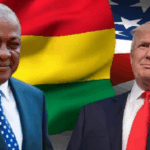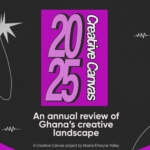
The opening of the 80th UN General Assembly this week set the stage for a clash of two starkly different worldviews. While President John Mahama of Ghana championed a new era of African self-reliance and global health equity at a high-level side event in New York, United States President Donald Trump presented a nationalist, “America First” agenda in his formal address to the General Assembly on Tuesday, September 23. The juxtaposition of these two moments offers a unique lens for Ghanaians and Americans to analyse a world at a crossroads.
The global landscape was already marked by urgency. UN Secretary-General António Guterres opened the session by warning that the world is in “turbulent—even uncharted—waters” and that “geopolitical divides [are] widening.” In this context, the speeches by Mahama and Trump were more than rhetorical flourishes; they were direct responses to a world in crisis, each proposing a fundamentally different path forward.
The Accra Reset versus Trump’s global scolding
Ahead of the opening of the General Debate of the 80th UN General Assembly on Tuesday, September 23, 2025, President Mahama presented a compelling vision of African health sovereignty, a concept he has termed the “Accra Reset.” He joined fellow Heads of State and Government at an Africa CDC meeting on Securing Africa’s Health Sovereignty: Political Leadership for Sustainable Health Financing, Local Manufacturing, and Pandemic Preparedness.
This initiative aims to transform global governance, starting with health, by ensuring Africa is a co-designer and co-owner of solutions, not merely a participant. “The outdated notion that health drains our economies must be rejected,” Mahama declared. “In truth, health is the engine of productivity and the bedrock of inclusive growth.” His vision, articulated in the Accra Compact, outlines a framework for national ownership and investment. Mahama’s message directly counters the global trend of declining international assistance, citing specific cuts by the US and other NATO allies.
In contrast, President Trump’s wide-ranging speech resembled more of a domestic political rally than a global address, drifting into topics from US crime rates to windmills. He reiterated his scepticism of multilateralism: “The UN has such tremendous potential, but it’s not even coming close to living up to that potential. All they seem to do is write a really strongly worded letter and then never follow that letter up—it’s empty words.” Trump dismissed renewable energy as a “green energy scam” and accused the UN of “funding an assault on Western countries” through migration—positions that directly contradict global consensus on climate change and humanitarian aid.
For Ghanaians, his remarks struck a chord: climate change disproportionately affects African nations, while migration is a pressing issue for the continent’s youth. For Americans, Trump’s words underscored his administration’s foreign policy and budgetary priorities, marking a sharp break from previous governments that emphasised international cooperation.
The vision and its tangible example
At the UNGA, President Mahama formally launched “The Accra Reset: Reimagining Global Governance for Health & Development.” Calling for a fundamental reset of the development agenda, he argued, “If we are to heal our health systems, we must first reset development itself.”
He illustrated this with Ghana’s decision to uncap its National Health Insurance Fund (NHIS), unlocking an additional GHS 3.5 billion (about USD 300 million) to offset funding gaps left by cuts from the US Agency for International Development (USAID). Mahama noted that over 18 million Ghanaians now hold NHIS cards, granting them access to free healthcare. This, he said, was proof that “resources can be shifted from less urgent areas into critical needs like health”—a model he urged other nations to adopt.
Mahama reminded world leaders that progress in reducing poverty and increasing life expectancy remains fragile. The COVID-19 pandemic, he stressed, reversed nearly two decades of gains in less than two years.
A tale of two futures: collaboration vs isolation
Though delivered in separate settings, the speeches by Mahama and Trump reflected a fundamental tension in global politics. Mahama called for a united Africa to demand fairness and equity from institutions like Gavi and the Global Fund, urging leaders to invest in domestic health systems. His message was one of collaboration and collective strength. In his role as African Union Champion for African Financial Institutions, he has consistently pushed for alternative financing models. “As this world steps back, let Africa step forward,” he urged.
Trump, however, underscored isolationist policies, portraying international relations as transactional. Warning European states about migration and threatening tariffs on Russia, he bluntly declared: “If you don’t stop people that you’ve never seen before, that you have nothing in common with, your country is going to fail.” His remarks drew groans and uneasy laughter from some delegates but also signalled a clear prioritisation of national self-interest over multilateral consensus.
For Ghanaians, the critical question is which path offers a more hopeful future: a collective African voice in a reforming world order, or retreat into national self-reliance in a world where major powers are withdrawing.
Ghana’s domestic efforts: hopes and headwinds
Mahama’s remarks on Ghana’s domestic initiatives underscored his commitment to health sovereignty. He pointed to the Ghana Medical Trust Fund Act (popularly called MahamaCare), aimed at financing non-communicable diseases, and the creation of a National Vaccine Institute—backed with GHS 75 million—to make Ghana a regional hub for vaccine research and manufacturing.
While these steps were hailed as bold, some experts raised concerns about sustainability. Critics of the Medical Trust Fund noted that allocating 20 percent of the NHIS could destabilise health financing. Dr Kwame Asiedu, a public health expert, defended the urgency, saying: “I would rather we run with that money, save lives, than hold an argument over adequacy and watch people die because they couldn’t afford dialysis.”
The mixed reactions highlight the challenge of turning political will into practical results. Still, many Ghanaians expressed pride in the effort. “We have always relied on international aid for big projects. Seeing our leaders take bold steps to solve our own problems, especially in health, gives us hope that our future is in our own hands,” said Elorm Baeta, a community health worker in Accra.
The wider geopolitical context: navigating a multipolar world
Trump’s cuts to foreign aid have deepened financial vulnerabilities across Africa, creating what the WHO has described as a “cliff edge” for health systems. In this context, the Accra Reset is less a choice than a necessity.
At the same time, the world is shifting towards a multipolar order, with Russia, China, and European powers forging new blocs. Mahama’s insistence on a united African voice is thus not only visionary but also strategic. Efforts by the Africa CDC to secure transparent, direct funding—bypassing traditional aid channels—underscore this urgency.
Other leaders at the UNGA also seized the moment to push for solutions to pressing crises. Calls for a two-state solution in Gaza, declarations by European nations recognising a Palestinian state, and renewed focus on the war in Ukraine dominated discussions. Against this backdrop, Mahama’s emphasis on health sovereignty stood out as an actionable alternative amid global stalemate.
A counterpoint from the Global South
South African President Cyril Ramaphosa offered a sharp rebuttal to Trump’s climate scepticism. “Climate change is reversing economic growth and development gains in many countries, especially in the Global South. Although Africa carries the least responsibility for climate change, many African nations suffer its harshest effects,” he told the Assembly.
His remarks reinforced the urgency of Mahama’s agenda: in a world where major powers retreat from global responsibility, African self-reliance is no longer optional but essential.
Support from African leaders and the diaspora
Mahama’s Accra Reset has drawn praise both at home and abroad. Ghanaian diaspora groups in the US rallied to welcome him in New York, with one supporter proclaiming: “We are very proud of this achievement… we the women too, we now have a say in Ghana.”
Within Africa, the initiative has won institutional support. The Africa CDC’s Committee of Heads of State and Government commended Mahama’s leadership and designated it to host the Africa Health Sovereignty Initiative under his guidance. Former Nigerian President Olusegun Obasanjo also lent his voice: “Africa needs health without aid,” he declared, encapsulating the ethos of the Reset.
The stakes for young Ghanaians
For Ghana’s youth, Trump’s remarks on migration and climate change strike especially close to home. Climate-induced displacement is already disrupting lives, with erratic rainfall and coastal erosion forcing young people to abandon ancestral lands.
“Climate change is not a distant threat for young Ghanaians; it is already reshaping their livelihoods, education, and even peace in their communities,” warned a Youth Bridge Foundation policy brief. Young activists, however, are not waiting. “Youth don’t just deserve a seat at the table; they belong at the centre of the conversation,” said a member of the Ghana Youth Environmental Movement.
This outlook directly challenges the exclusionary worldview embodied in Trump’s rhetoric.
Ghana’s diplomatic dance
Ghana’s attention now turns to President Mahama’s formal speech to the General Assembly on Thursday, September 25. As the 12th speaker of the session, he is expected to expand on the themes of the Accra Reset, offering a counter-narrative to isolationist rhetoric and laying out a roadmap for Africa’s future.
For Ghana, the diplomatic challenge is clear: to secure its interests and advance global health equity at a time of declining foreign aid and rising isolationism. The contrast between Mahama’s call for collective strength and Trump’s “America First” posture defines a critical moment for a nation striving to lead on the world stage.

